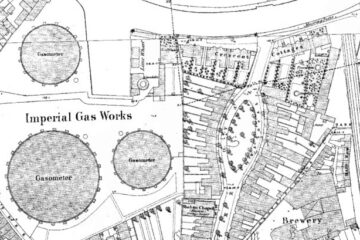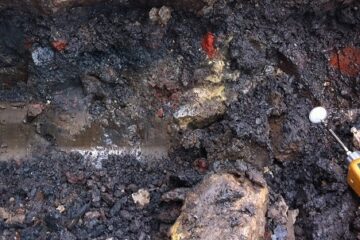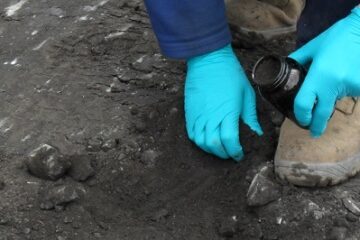Will the recent Growth and Infrastructure Act 2013 make a positive difference to the UK?
Will the Act make a difference to how Contaminated Land is handled?
Question 1 has many answers with the polarised ones as usual the most interesting. The Local Government Association web-site says that barriers to growth aren’t Planning, apparently Planning approvals are already high as all councils understand the need to boost their local economies through construction. The Gov.uk web-site is of the opinion that this Act will Kick-start several large infrastructure projects which are held up in Red-Tape, amongst other positive changes to the UK including preventing unexpected hikes in business rates on local firms over the next 5 years.
Searching for references to the Act and contaminated land hasn’t brought up anything new. The usual talk of encouraging redevelopment of brownfield land can be found, but nothing to say that we’ll be getting any new guidelines on how to clean-up sites. The answer may therefore be that No, the Act will not effect Planning from a Contaminated Land point of view. Anyone know any different, please leave a comment as we’d love to hear more.
I am a big advocate of the Landfill Tax escalator, however is this a bigger constraint on development that it was intended to be?
I found this summary of the Act from civicvoice.org.uk interesting
Summary
The headline measures include:
Some major planning applications (nationally significant business and commercial projects) will be able to be submitted directly to the Secretary of State, where Local Planning Authorities (LPAs) have a very poor record in deciding applications.
- The affordable housing obligations in Section 106 agreements may be renegotiated where the development is not viable
- Stopping misuse of town and village green applications to undermine planned development
- Cutting back the volume of paperwork which applicants have to submit with a planning application
- Making it easier for local authorities to choose, if they wish, to dispose of surplus land held for planning purposes, with the aim to get more brownfield land back in use
- Removal of red tape around the roll-out of superfast broadband
- There are new trigger events included within the bill, such as applications for planning permission, which restrict the right to register land as a town or village green, and landowners can now deposit statements which will bring an end to any period of lawful use of the land for sports or pastimes;
- Implementing the recommendations from the ‘Penfold’ review to remove other over-lapping development consent regimes, where multiple permissions from different government agencies are required on top of planning permission.
2021
Soil remediation guide
Approaching soil remediation without any prior knowledge can be difficult and uncomfortable at times, especially when it can potentially be very costly. This free eBook will help you understand the whats, the whys and the hows of soil remediation in the simplest terms.







Stopping misuse of town and village green applications for development